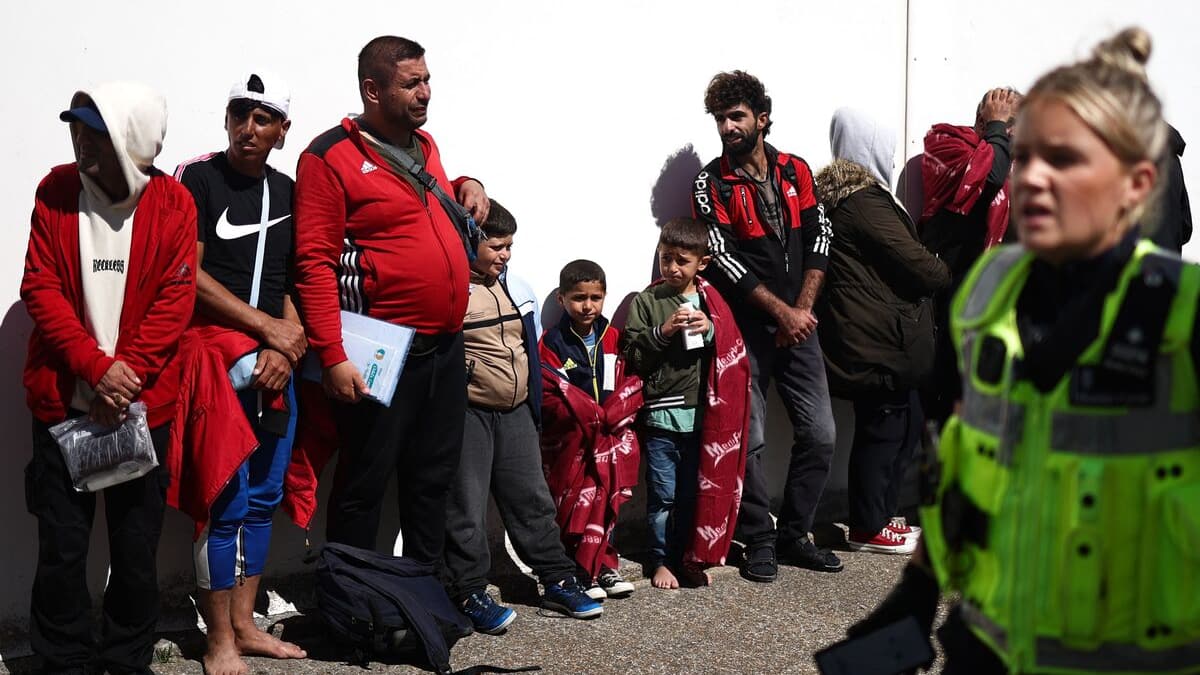
Israel announced on Tuesday that it had lost 24 soldiers in Gaza the day before, its largest military loss in a single day since the start of its ground offensive in the Palestinian territories, as pressure mounted on its government for a truce in the war against Hamas.
According to Israeli army spokesman Daniel Hagari, 24 soldiers, including 21 “reservists,” were killed on Monday, the largest daily loss since October 27. He explained that all the reserve soldiers were killed as a result of the explosion of an RPG shell that targeted a tank and a building that the army mined with the aim of demolishing it in the southern Gaza Strip.
Israeli Prime Minister Benjamin Netanyahu announced the opening of an investigation into what he described as a “disaster.”
On Monday, the symbolic milestone of 200 Israeli soldiers killed since the start of the ground offensive in Gaza was crossed.
The city of Khan Yunis is “besieged”
The war broke out due to the unprecedented attack launched by Hamas on Israeli territory on October 7, which killed more than 1,140 people, most of them civilians, according to a count conducted by Agence France-Presse based on official Israeli data.
About 250 people were kidnapped and transferred to Gaza, including about 100 who were released at the end of November during a truce in exchange for the release of Palestinian prisoners. According to the same census, there are still 132 hostages in the area, and 28 of them are believed to have died.
Israel has vowed to “annihilate” Hamas, which seized power in Gaza in 2007 and launched a massive military operation that killed 25,490 Palestinians – the vast majority women, children and teenagers – according to the Hamas health ministry.
On the ground, Israeli forces announced on Tuesday that they had “surrounded” Khan Yunis, the main town in the southern Strip, where local Hamas leaders are hiding, according to Israel. It is also the birthplace of Yahya Sinwar, the leader of Hamas in Gaza, who is considered the architect of the October 7 attack.
Eyewitnesses reported that Israeli artillery bombed sites close to Nasser Hospital, and the Palestinian Red Crescent accused the Israeli army of targeting its headquarters in this town, and wounding people who took refuge in the complex.
According to the Palestinian telecommunications company Pal-Tal, the besieged and largely devastated territory is also facing new internet and phone outages since Monday.
At least 1.7 percent of the population of 2.4 million people were forced to flee their homes, many of them clustered in the south.
He calls for a truce
At 109H On the day of war, and in the face of the catastrophic humanitarian and health situation in Gaza, according to the United Nations, calls are increasing for a new truce and preparations for the post-war period.
“People in Israel will demand clear answers about the reasons and purpose of this operation in Gaza,” Israel Oron, a security expert at Ben Gurion University, told AFP.
According to the American website Axios, Israel offered Hamas, through the mediation of Egypt and Qatar, a cessation of fighting and raids in Gaza for two months in exchange for the release of all hostages and the recovery of the bodies of those who died.
As part of the plan, Israel and Hamas must agree on the number of Palestinian prisoners to be released for each hostage, Axios reported.
During a meeting on Monday with relatives of the hostages, Benjamin Netanyahu spoke about an Israeli “initiative,” but claimed he was unable to “detail” it, according to local press.
On the other hand, the Israeli government refuses to consider in the long term the “two-state solution”, that is, an independent Palestinian state alongside Israel, which angers the international community.
“What other solutions are they considering?,” European diplomacy chief Josep Borrell asked on Monday in Brussels. He was speaking after separate meetings between European foreign ministers and their Israeli counterparts Israel Katz and Palestinian Riyad al-Maliki.
He warned that Israelis were “sowing the seeds of hatred for generations to come.”
“Weakening” the Houthis
The conflict is also exacerbating tensions between Israel and Hamas's pro-Iranian allies.
In Yemen, the United States and the United Kingdom again bombed Houthi positions in Yemen overnight from Monday to Tuesday, to “weaken” the military arsenal of these rebels who are increasing their attacks against commercial ships in the Red Sea and Gulf of Aden. Disrupting international traffic.
The Houthi military spokesman, Yahya Saree, responded by saying, “These attacks will not go unanswered or unpunished.”






